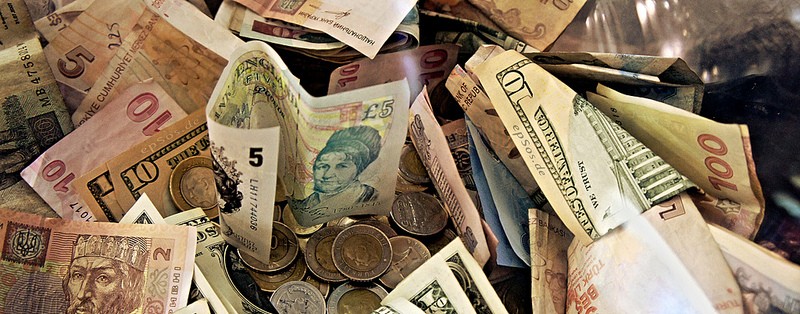The restrictions by the Biden administration on the sale of semiconductor chips and the equipment to manufacture them represent a new stage in the division between China and the U.S. The belief that increased trade would lead to a convergence of Chinese and U.S. interests faded years ago. The history of globalization shows clearly that the chances of Chinese as well as Russian acceptance of a liberal order overseen by the U.S. were unlikely, and a struggle for control inevitable.
The study of hegemonic power can be used to illustrate how discord can arise over the distribution of the global benefits of economic growth. MIT economic historian Charles Kindleberger made the case in The World in Depression, 1929-1939 that international economic prosperity needs a nation to provide leadership. The duties of the hegemonic power include maintaining an open market for imports from countries in distress, providing long-term capital and acting as a lender of last resort. More generally, the hegemonic country provides the public good of rules that govern international transactions and ensures compliance to them by other nations.
Great Britain was the hegemonic power of the 19th century and its dominance lasted until the first World War. This was a period of rapid growth for the European countries and Britain’s “offshoots,” i.e., Canada, the U.S., Australia and New Zealand. The shared economic prosperity made the outbreak of a war among the industrial powers seem unlikely. Norman Angell made the case in The Great Illusion, first published in 1909, that the costs of a war among the industrial powers were so great that they would deter their governments from engaging in conflict.
But the predominance of Britain during this period was being questioned by the U.S. and Germany. Each country had leaders—President Theodore Roosevelt in the U.S. and Kaiser Wilhelm II in Germany—who made clear that they would not accept subordinate positions. The Germans were particularly resentful of their inability to match the size of Britain’s colonial empire, as the colonies had largely been claimed before Germany’s emergence as a nation in 1871after its defeat of France in the Franco-Prussian War.
Graham Allison of Harvard’s Kennedy School wrote about these tensions, and the British response, in his Destined for War: Can America and China Escape Thucydides’s Trap? The “trap” that Allison draws from the work of the Greek historian Thucydides is the confrontation that arise when a rising power threatens a ruling one. Thucydides wrote about the Peloponnesian War between Athens and Sparta, which occurred when Sparta responded to what it saw as a threat to its dominance of the Greek states by the growing Athenian empire.
In the 19th century, Britain was the dominant power facing challenges from other nations. British statesmen decided that Germany posed a more immediate security threat, and accommodated U.S. demands in the Western Hemisphere without surrendering their own interests. But Britain also built up its already powerful battle fleet and created an alignment with France and Russia, the Triple Entente, to counter a German threat.
This deterrence was not enough to avoid the breakout of World War I. The costs of the war hindered Britain’s ability to resume its hegemonic role, and the U.S. was not willing to take its place. As a result, Kindlerberger claimed, the economic crisis of the 1930s was deeper and more extended than it would have been if an international hegemon had been present. The response of the U.S. in creating the United Nations, the International Monetary Fund, and other multilateral organizations after World War II showed that by that time it had learned the lesson of the need for international institutions.
Allison presents other examples of challenges to hegemonic powers by rising powers. In the 17th century, the Dutch Republic was the leading maritime power. It possessed trading posts and colonies in Asia, Africa, and the Americas, and a formidable fleet of warships to defend them. England resented this control and engaged in three maritime wars with the Dutch. The hostilities between the two countries only ended when William of Orange became King William III of England, and the Dutch and English waged war together on the predominant European land power, France.
Allison makes clear that the rivalry between China and the U.S. need not result in war. Besides the British accommodation of U.S. interests in the late 19th century, he points to the “Cold War” between the Soviet Union and the U.S. as an example of a struggle that did not lead to direct conflict. One of the reasons for the avoidance of the escalation of hostilities to total war was the existence of nuclear weapons,, which dramatically raised the cost of using the full range of weapons. But the Cuban missile crisis showed that it was possible to come perilously close to moving into a full-blown conflict. The expansion of trade and finance to new markets creates opportunities for rivalries and competition that can trigger responses that lead to unforeseen consequences.
